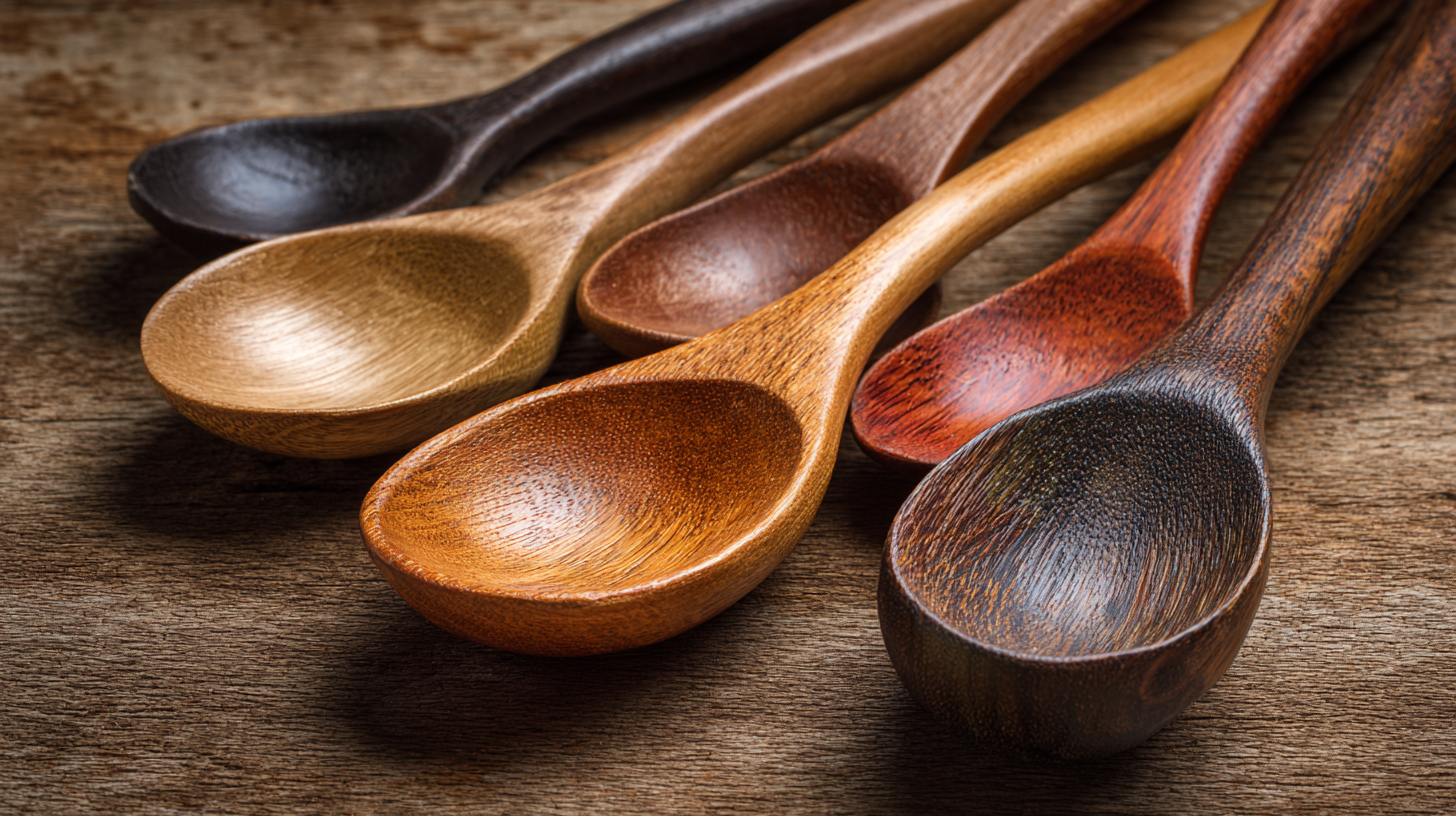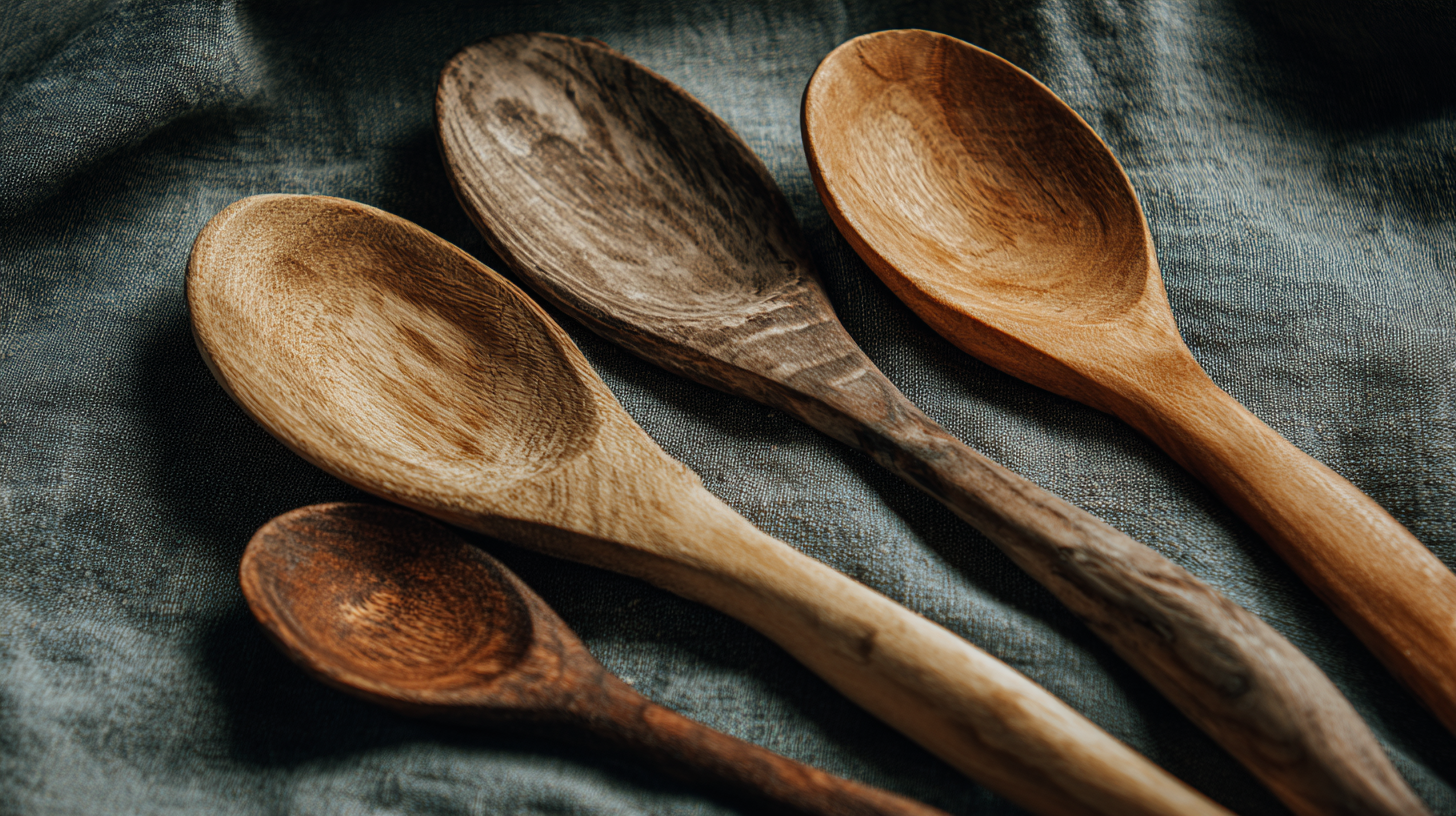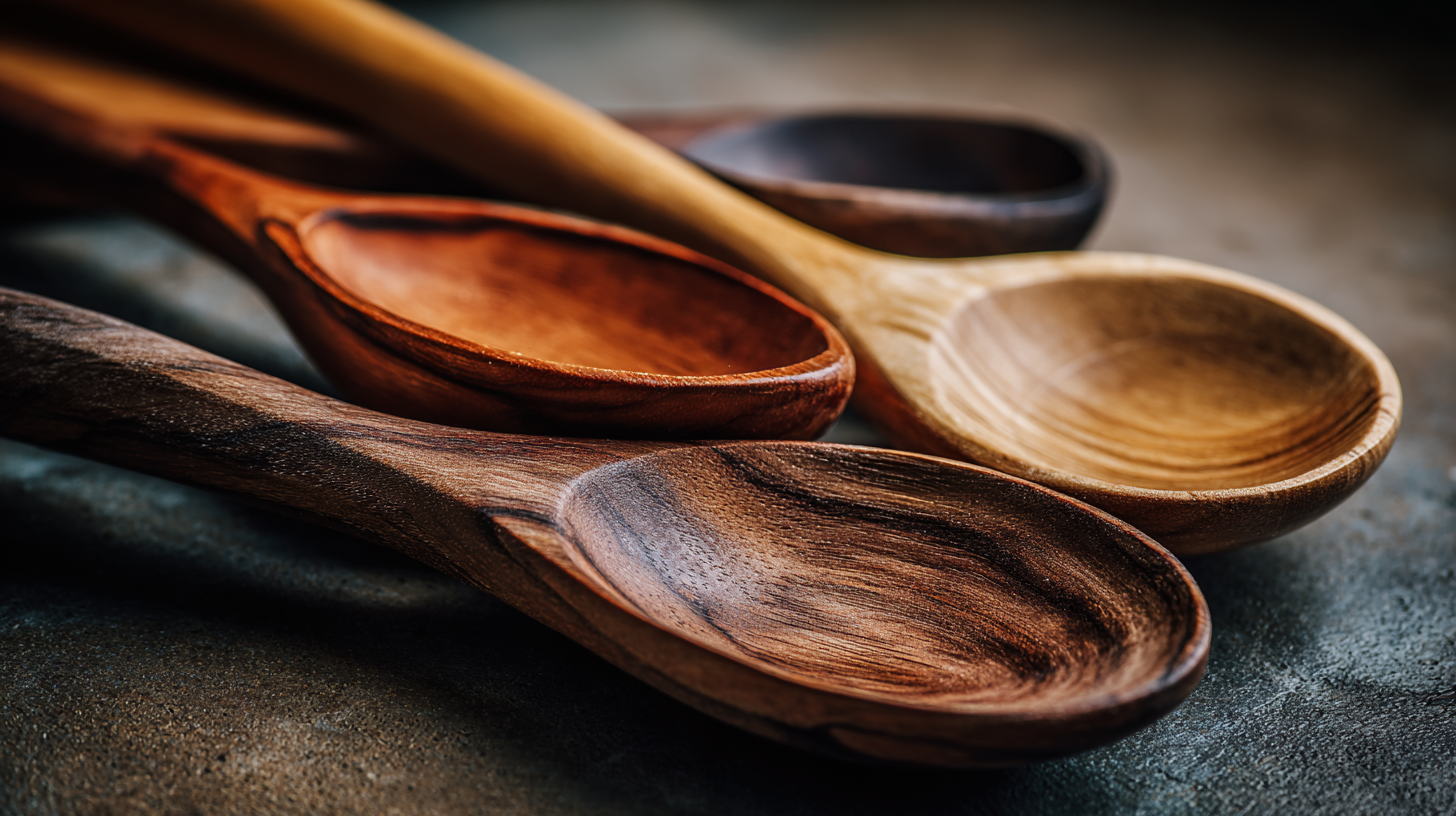In the world of kitchen utensils, wooden spoons have carved out a significant niche, valued for their versatility and durability. According to a report by Grand View Research, the global kitchen utensils market is expected to reach USD 13.4 billion by 2025, with wooden kitchen tools, particularly "Spoons Wood," gaining popularity among home cooks and professional chefs alike due to their eco-friendliness and aesthetic appeal. As consumers increasingly seek sustainable options, the demand for high-quality wooden spoons manufactured with precision has surged, exemplifying the adage "Made in China, Earned Global Respect." This guide aims to assist you in navigating the myriad choices available, ensuring you select the best wooden spoons that not only meet your culinary needs but also contribute to a more sustainable kitchen environment.

The history of wooden spoons is rich and fascinating, tracing back to ancient civilizations where they served as essential tools for cooking and serving food. Crafted from local wood, these spoons were not only functional but often held cultural significance, with unique designs and carvings reflecting the traditions of the time. In many cultures, wooden spoons were used in religious rituals, symbolizing nourishment and hospitality, embodying a connection between the cook and those being served.
As societies evolved, so did the craftsmanship of wooden spoons. In the Middle Ages, artisans began to create more intricate designs, transforming simple cooking instruments into works of art. By the 18th and 19th centuries, wooden spoons became commonplace in kitchens worldwide, favored for their durability and resistance to heat. Their smooth surfaces made them ideal for mixing and serving, ensuring they became indispensable tools for generations. Today, wooden spoons continue to hold a cherished place in both professional and home kitchens, symbolizing a blend of tradition and modern culinary practices that resonates with cooks everywhere.

When it comes to selecting wooden spoons for your kitchen, craftsmanship is paramount. High-quality wooden spoons are typically crafted from hardwoods such as maple, beech, or walnut, which are known for their durability and resistance to wear. According to a report by the American Wood Council, wood kitchen utensils can last up to 20 years or more with proper care. This longevity is not only beneficial for your wallet but also contributes to sustainable kitchen practices by reducing the need for frequent replacements.
The influence of craftsmanship on performance cannot be understated. A well-crafted wooden spoon has a smooth finish that prevents food from sticking, ensuring a seamless culinary experience. Moreover, the ethical sourcing of wood and the precision of craftsmanship can affect not just the utensil's performance but also its safety. Research shows that wooden utensils have natural antimicrobial properties, making them a safer choice compared to plastic alternatives. The quality of craftsmanship directly impacts these benefits, as poorly made spoons can harbor bacteria and lead to food contamination. By investing in high-quality wooden spoons, you are choosing safety, sustainability, and superior performance for your kitchen.
When it comes to choosing the best wooden spoons for your kitchen, understanding the characteristics of different types of wood is essential. Popular materials like maple, beech, and cherry each offer unique benefits. Maple is known for its durability and resistance to warping, making it a favorite among chefs who require tools that withstand intense use. Beech is another excellent choice due to its fine grain and smooth finish, which provides a non-stick surface perfect for mixing and stirring.
Tip: Always opt for a spoon with a smooth finish to prevent food from getting trapped in any grooves. This not only enhances hygiene but also makes cleaning your wooden spoon much easier.
Cherry wood adds a touch of elegance with its rich color that deepens over time, along with being moderately strong and reasonably resistant to absorption. This feature helps keep flavors from lingering, which is an asset for versatile cooking. Moreover, the natural oils in some woods can help protect against staining and cracking.
Tip: Consider seasoning your wooden spoons with mineral oil periodically. This simple step can prolong their life and maintain their appearance, ensuring your kitchen tools remain functional and beautiful for years to come.

When it comes to preserving the beauty and functionality of your wooden spoons, proper care and maintenance are vital. One of the most effective tips is to wash your wooden utensils by hand using mild soap and warm water. Avoid soaking them in water or placing them in the dishwasher, as prolonged exposure can warp the wood or cause it to crack. After washing, gently dry your spoons with a soft cloth to keep them in optimum condition.
Another essential tip is to regularly oil your wooden utensils. Using food-grade mineral oil or a specialized wooden utensil oil can prevent the wood from drying out and maintain its luster. Apply a small amount of oil onto a clean cloth and rub it onto the surface of the spoon, allowing it to absorb overnight. This practice not only enhances the natural grain of the wood, but also provides a barrier against moisture and stains, ensuring that your utensils last for many years of cooking enjoyment.
Lastly, store your wooden spoons in a dry, cool place to avoid exposure to direct sunlight or heat sources, which can lead to drying and cracking. By following these simple but effective care techniques, you can ensure the longevity of your wooden utensils, keeping them beautiful and functional for all your culinary adventures.
As the world becomes increasingly aware of environmental issues, consumers are actively seeking eco-friendly alternatives in their kitchens. Wooden kitchenware, particularly wooden spoons, has emerged as a popular choice due to their natural materials and minimal environmental impact. Embracing options that are sustainable not only reduces plastic waste but also promotes healthier cooking practices. The shift towards biodegradable and compostable materials is evident, with a growing market for wooden utensils that can seamlessly integrate into our daily lives while being kind to the planet.
Trends indicate that sustainability is no longer a mere preference but a necessity in kitchenware selection. Materials such as bamboo are gaining traction as viable substitutes for traditional wood, demonstrating that there are numerous paths to achieve an eco-friendly kitchen. With the rise of global initiatives promoting low or zero waste households, the demand for high-quality wooden spoons and other utensils is expected to grow significantly. By choosing products that prioritize sustainability, consumers can contribute to a greener future while enhancing their culinary experiences.
| Wood Type | Durability | Maintenance | Sustainable Rating | Price Range (USD) |
|---|---|---|---|---|
| Maple | High | Easy | A | 10 - 25 |
| Bamboo | Medium | Very Easy | A+ | 5 - 20 |
| Teak | Very High | Moderate | B | 15 - 40 |
| Cherry | High | Easy | A | 12 - 30 |
| Ash | Medium | Easy | B+ | 8 - 22 |
